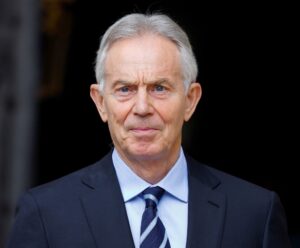“What’s in a name? That which we call a rose by any other name would smell as sweet,” Shakespeare wrote. But when it comes to baby names, some are considered downright offensive and are even banned in the US and other countries. Children’s names reportedly tell a lot about the parents, including their political parties. While some titles are obviously insulting, you might be surprised at others that make the “do not name” list.
How Are Baby Names Offensive?
Passing down a family name is an old tradition that continues today. In England, for example, royal babies are usually given three or more names at birth, many of which honor family members. Since Queen Victoria was born in 1819, there have been nine girls named Victoria and 12 boys named Albert, after the prince, in royal families.
There’s just something about carrying on the family name or a memory of a loved one that appeals to people. Of course, not everyone is as enthusiastic about naming their children after them as former boxer George Foreman, who named his five boys George. But naming a child after a family member can now cause offense. What if you wanted to honor great-grandma Dixie? That’s no good; the name is associated with the South and slavery. The Dixie Chicks found that out the hard way and changed their name to just Chicks.
Political monikers are also popular for new parents wanting their kid to have a powerful or prevalent name. In the 1940s, Franklin became a common name after, of course, Franklin D. Roosevelt, and is still popular today “amongst wealthy, educated, liberal and conservative parents,” Fatherly reported. The name Hillary, however, tanked after 1992, according to Nameclouds, after Bill Clinton was elected to the oval office and she became the first lady.
Baby Name DNA points out a trend in the name Tiffany among liberals, which it notes would seem like an “improbably choice” since it is the name of Tiffany Trump, daughter of former President Donald Trump.
A study from the University of Chicago linked baby names with race, education levels, street address, and political parties. As Fatherly explained:
“For example, people who live in liberal neighborhoods are more likely to choose unusual names, particularly if the mother is college-educated. Likewise, parents of color are likely to also choose unusual names but spell them in different ways than white, liberal educated moms. And conservatives are the most likely of all to choose traditional names like Richard, which are associated with historically wealthy white people, suggesting that conservatives value wealth and tradition when it comes to naming their children.”

(Photo by Hendrik Schmidt/picture alliance via Getty Images
The way we spell baby names supposedly gives away our political inclinations as well. One of the best examples is the difference between Caitlin and Katelynn. According to Nameclouds, liberal parents, in 98% of cases, use the Caitlin version, “while Katelynn is virtually 100% Conservative.”
Whites used partisanship and ideology when choosing a name, according to a prominent Washington news outlet. “Mothers who had at least some college education were more likely to give their child an uncommon name – and less likely to give the child a popular name – when they lived in relatively Democratic or liberal areas.” Furthermore, “If neighborhood characteristics corresponded to the mother’s own characteristics, better-educated Democrats or liberals were more likely to give their babies unusual names than better-educated Republicans or conservatives.”
Democrats and Republicans also reportedly choose names based on how they sound, the Washington outlet explained, citing the University of Chicago study:
“[F]or both boy and girl babies, ‘softer’ sounds were more prominent among educated whites living in more Democratic or liberal neighborhoods. That is, a boy’s name like ‘Julian’ or ‘Liam’ or a girl’s name like ‘Malia’ would be more common in Democratic neighborhoods. A boy’s name like ‘Trig’ or a girl’s name like ‘Bristol’ would be more common in Republican neighborhoods.”
Who knew choosing baby names could be so telling and even insulting? The list of offensive names grows as social justice warriors condemn the use of certain handles. Gunner, Caliber, Cannon, Colt, Remington, and Wesson, according to the New York Post, should be avoided because of the debate over gun control. Harvey is another no-no because of film producer and convicted sex offender Harvey Weinstein and Hurricane Harvey. New parents should also resist using names that center around geography or tribal names such as Asia, Kenya, Dakota, Cree, or Cheyenne because that is considered racist, the outlet opined. And, of course, there’s Karen, a once popular name now associated with entitled and demanding middle-class white women.

Tony Blair (Photo by Max Mumby/Indigo/Getty Images)
Nameberry suggests not using the name Blair, not just because of the movie The Blair Witch Project, but also because of the negative associations to former UK Prime Minister Tony Blair, according to the source. So-called “cute” names were also flagged by the website, including Teddy, Sonny, Kitty, and Goldie. Parents should also avoid some “virtue-associated” titles such as Joy and Grace.
It is also important, apparently, not to name a child that might associate with physical attributes. Thor, for example, puts an impossible burden on the child who will never be able to live up to the mythical god’s accomplishments. Naming a child Adonis is associated with masculine beauty for which Nameberry said “could be an awkward name to wear for someone who doesn’t fit the dictionary definition,” New York Post explained.
Now that we’ve gone through a few suggestions of what not to use, there are actually baby names that are banned in the US and across the globe. In the United States, the list includes King, Queen, Jesus Christ, Santa Clause, and Adolf Hitler. Some names are forbidden because they are reserved for royalty or have religious connotations, while others the governments chose to step in to keep children from being bullied by carrying the weight of an inappropriate label.
Here are a few banned baby names from around the world according to the US Birth Certificate website:
- Linda (Saudi Arabia): Because it broke from social tradition and is too western for their country.
- Friday (Italy): It would cause a child to be ridiculed to be named after the character in Robinson Crusoe.
- Sarah (Morocco): The Moroccan government banned it because it is considered a Hebrew Spelling.
- Metallica, IKEA, Elvis (Sweden): In 1982, the “Naming Law” went into effect so families wouldn’t give noble names to their children and to prevent those that might be considered offensive.
- Prince William (France): Officials were afraid it would lead to a lifetime of insults and teasing for the child.
- Harriet, Duncan, Camilla (Iceland): Mostly, these names are banned because of grammar. There are no Cs in the Icelandic language, for example.
- Tom (Portugal): Thomas is okay, but in Portugal, nicknames or abbreviations are not allowed.
In the US, states have their own name restrictions, too. Many forbid using symbols and numbers, but in Texas, there is a 100-character limit on the first, middle, and last names. Texans also have to make sure their baby names are written in the English alphabet. As is the American way, parents can petition to get a baby name approved, and pay a fee. It doesn’t mean it will definitely get the green light, though, but a little greenback may go a long way.

